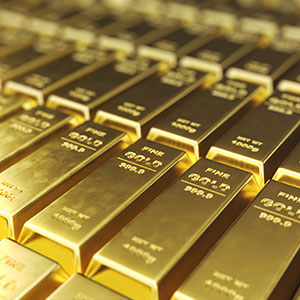
A long list of nongovernmental organizations and eco-minded industry groups have signed an “open letter” that says gold currently billed as “recycled” does not have the advertised environmental benefits.
“The term ‘recycled’…falsely implies to consumers that using such gold has a decisive positive social and environmental impact, and deserves to be called eco-friendly, ethical and responsible,” said the letter, addressed to the International Organization for Standardization (ISO), the London Bullion Market Association (LBMA), the Responsible Jewellery Council, and the Responsible Minerals Initiative.
According to the letter, “recycled” has historically been reserved for materials that are discarded, which gold generally is not.
“Under today’s definitions, once a piece of old jewelry or manufacturing scrap has been reprocessed into fine gold, a business-as-usual practice as old as the world, it benefits from a green image and a zero-carbon footprint,” said the letter.
But that’s not necessarily merited, as “recycled” gold can come from mines with a high carbon footprint, it said.
The signees called upon “all companies and consumer-facing brands to disclose the methodology used to calculate their gold carbon footprint and align it with independent scientific research.”
They also contended that due diligence requirements for recycled gold are lax.
“This creates loopholes that are exploited to introduce problematic gold into legitimate supply chains. This includes gold linked to conflict, organized crime, money laundering, tax evasion, and child labor, or to sanctioned Russian individuals or companies. Research has shown that refineries certified to best practice standards have carried out their due diligence for ‘recycled’ gold only until the first supplier, without knowing where this gold reenters the market and the risk associated.”
Furthermore, the letter asserted that companies selling only recycled gold do so at the expense of the artisanal and small-scale mining (ASM) sector, which is contrary to the Organisation for Economic Co-operation and Development (OECD) recommendations.
“Mining is vital to the livelihoods of around 100 million people worldwide,” the letter said. “Not engaging with ASM is likely the biggest missed opportunity for gold supply chains to have a real positive social and environmental impact contributing to a range of sustainable development goals, ensuring that local communities benefit from their mineral wealth.”
The letter was signed by the Alliance for Responsible Mining, Artisanal Gold Council, Ethical Metalsmiths, PeaceGold, Fair Luxury, Fairtrade Max Havelaar Switzerland, Impact, Pact, Solidaridad, Society for Threatened Peoples, Swissaid, and the Impact Facility.
(Photo: Getty Images)
- Subscribe to the JCK News Daily
- Subscribe to the JCK Special Report
- Follow JCK on Instagram: @jckmagazine
- Follow JCK on X: @jckmagazine
- Follow JCK on Facebook: @jckmagazine






